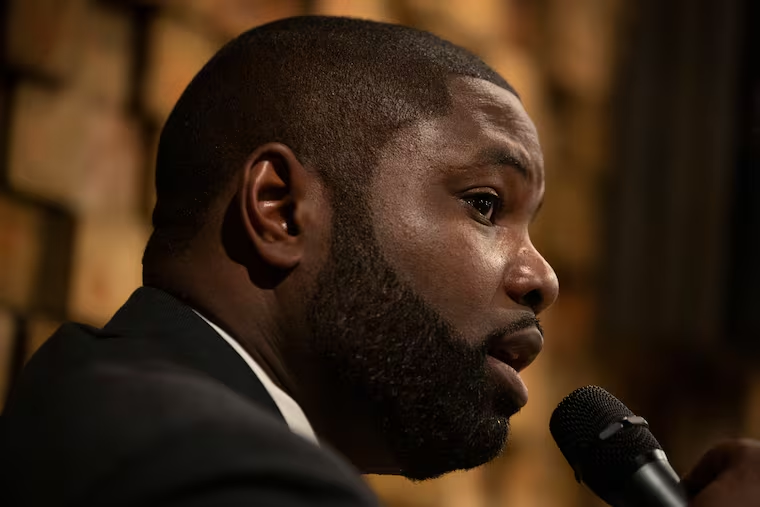Rep. Byron Donalds draws backlash for expressing nostalgia for Jim Crow era during Philly event
Democrats accused Donalds of praising Jim Crow-era policies. We have a recording of what he said.

U.S. Rep. Byron Donalds (R., Fla.) has come under fire for comments he made about the Jim Crow era of racial segregation during an event in Philadelphia on Tuesday.
The comments, first reported by The Inquirer on Tuesday night, came during a “Congress, Cognac, and Cigars” event featuring Donalds and U.S. Rep. Wesley Hunt (R., Texas). Both men are conservative Black Republicans, and the event was the first in a series aimed at helping the GOP reach Black voters and promote former President Donald Trump’s campaign to retake the White House. Donalds has been named as one prospective running mate as Trump searches for his vice president.
» READ MORE: Trump’s surrogates reached out to Black voters in Philly with cigars and cognac
President Joe Biden’s campaign and other Democrats attacked Donalds Wednesday for appearing to praise the Jim Crow era, in which racial segregation and disenfranchisement relegated Black Americans to second-class status. U.S. Rep. Hakeem Jeffries (D., N.Y.), for instance, gave a speech on the House floor denouncing Donalds for saying that “Black folks were better off during Jim Crow.”
Here is what Donalds said:
“One of the things that’s actually happening in our culture that you’re now starting to see in our politics is the reinvigoration of Black family with younger Black men and Black women, and that is also helping to breathe the revival of a Black middle class in America,” Donalds said. “You see, during Jim Crow, the Black family was together. During Jim Crow, more Black people were not just conservative — Black people have always been conservative-minded — but more Black people voted conservatively. And then H.E.W., Lyndon Johnson — you go down that road, and now we are where we are.”
Donalds was referring to President Lyndon Johnson’s Great Society program, which included the civil rights legislation that ended Jim Crow and also expanded federal food stamp, welfare, and housing programs. Many of those programs were implemented by the former U.S. Department of Health, Education and Welfare, or H.E.W.
He did not discuss the Jim Crow-era policies that enabled disenfranchisement and segregation. Instead, he made an argument that the increase in single-parent households in the Black community resulted from the vast expansion of the social safety net immediately following Jim Crow in the mid-1960s.
That argument is controversial in its own right given the complexity of the debate over the decline of Black marriage rates and two-parent households during the 20th century. Researchers, for instance, have noted that the rate of out-of-wedlock births has skyrocketed among all racial groups, not just Black families. And others contend that the relatively higher rates of single-parent households among Black families are primarily the result of a lack of economic opportunities and racial discrimination in the workforce.
The debate following Donalds’ comments focused on whether he praised Jim Crow, with Democrats like Biden spokesperson Sarafina Chitika saying Trump and his allies are “promising to take America back to Jim Crow.”
“If they didn’t know before, Trump and his team are showing Black voters what ‘Make America Great Again’ means: less freedom and fewer economic opportunities for our families,” Chitika said in a statement.
Donalds responded in a video Wednesday.
“Joe Biden’s campaign is lying to you once again,” Donalds said. “What I said is that you had more Black families under Jim Crow, and it was the Democrat policies under H.E.W., under the welfare state, that did help to destroy the Black family.”